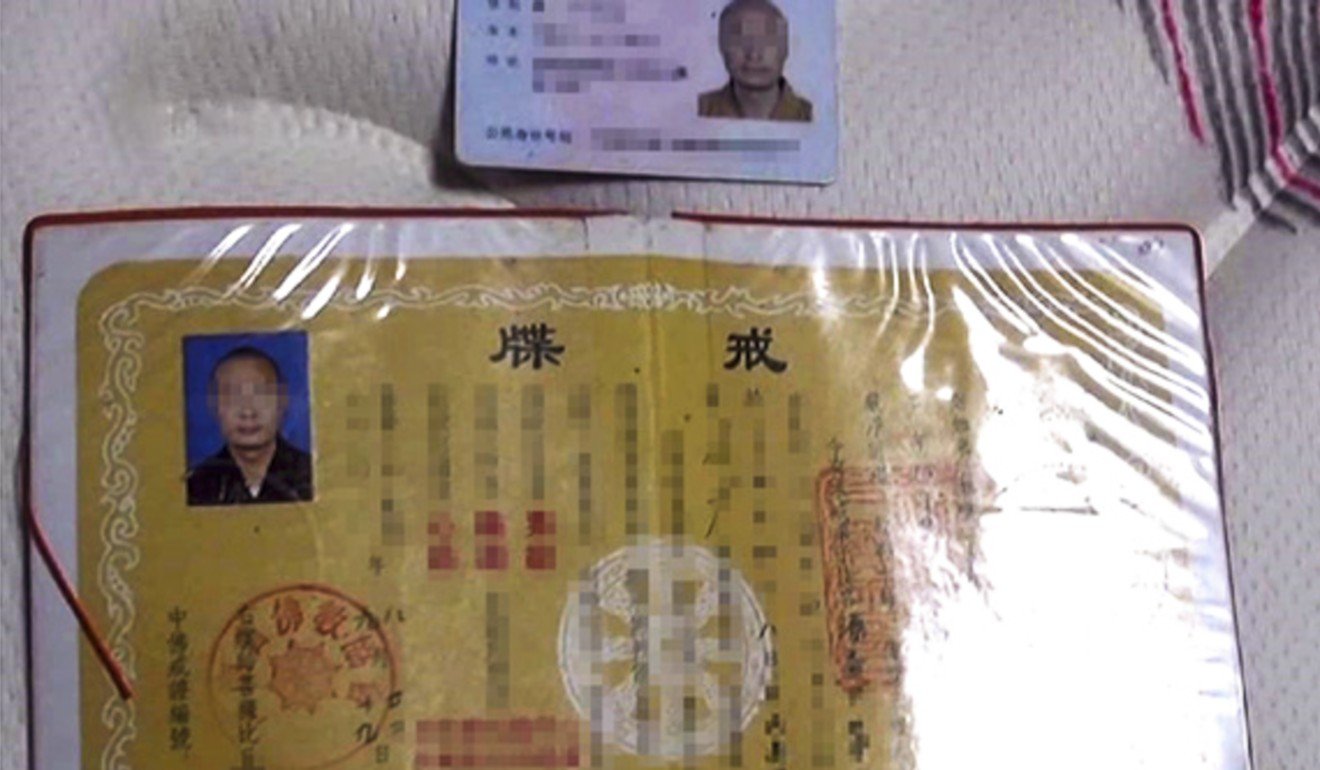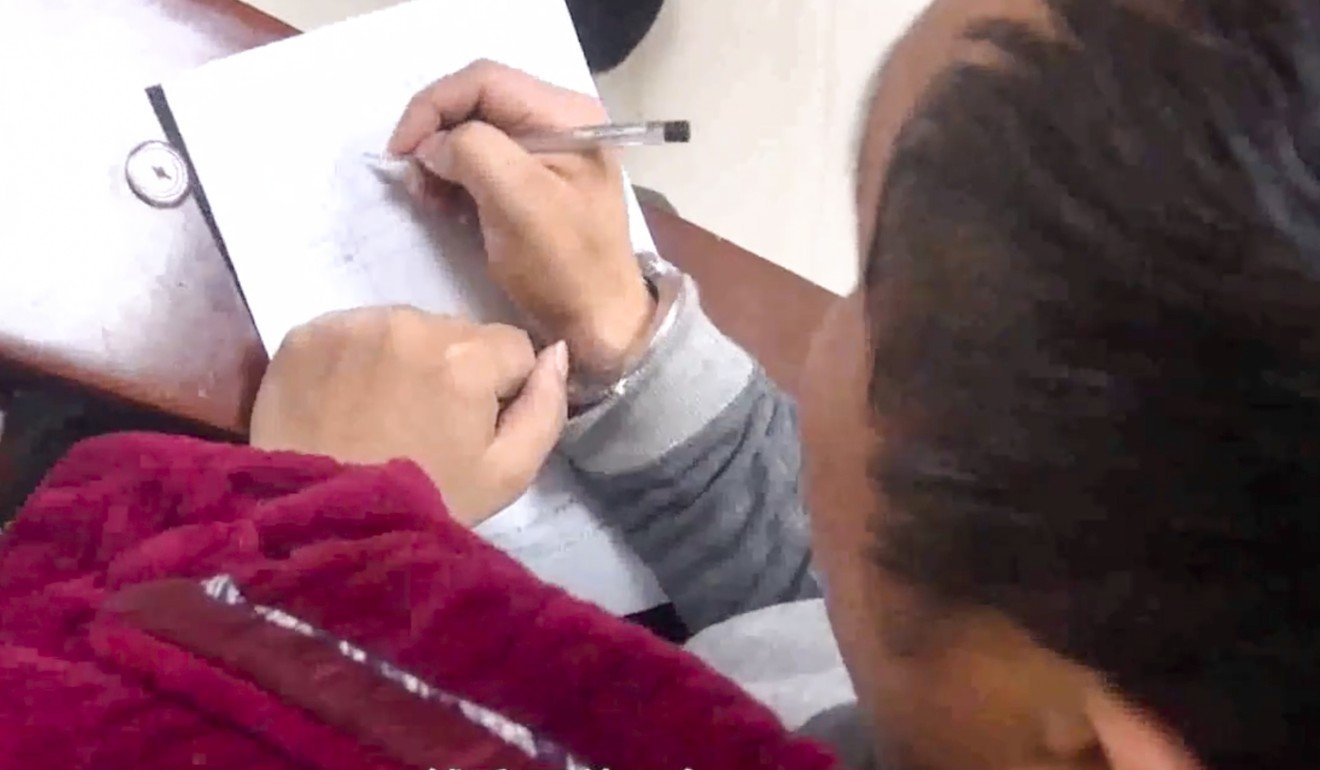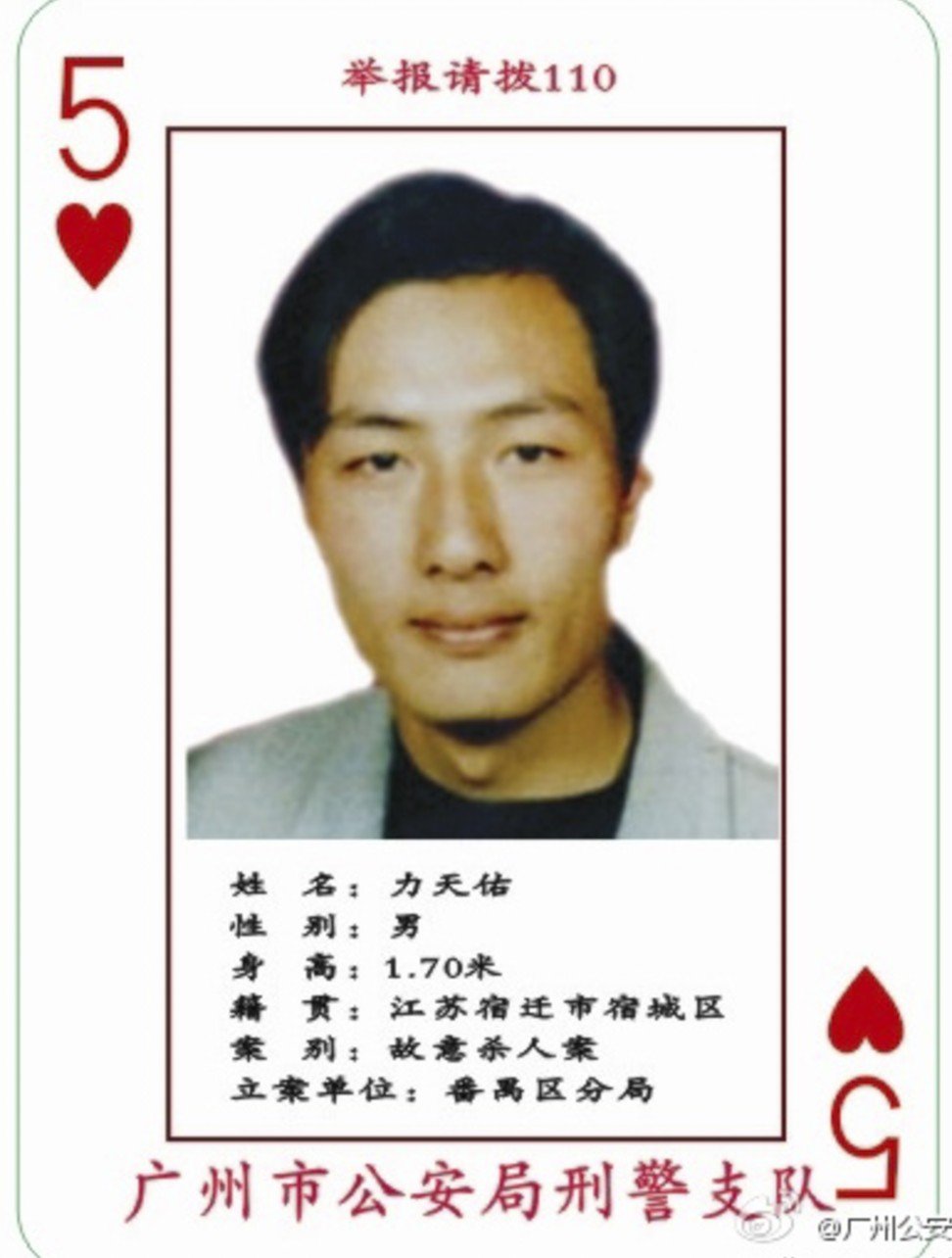
Police arrest fugitive Chinese murder suspect who won a village’s love as a fake monk
Li Tianyou, who was caught last month, became an abbot in east China and even led a fundraising campaign for a new temple
A suspected murderer on the run for 16 years in China has been arrested by police after avoiding capture by posing as a monk, local news reports said.
Li Tianyou, 41, was detained by police in late December on suspicion of killing a suitor of his girlfriend in 2002 in Guangzhou, capital of southern China’s Guangdong province, Thepaper.cn reported on Tuesday.
Li went on the run after three of his accomplices were arrested and jailed soon after the killing, according to information released by the Guangdong authorities late last month.
He kept moving from place to place, never staying long in a city. Forced to avoid using his ID or bank card, he often went hungry.
“While going to great lengths to avoid arrest, he went through a lot of suffering,” a Guangzhou investigator was quoted as saying.
By the time he arrived in Nanjing, Jiangsu province in 2004, Li had little money, according to the authorities.
Since working was out of the question, he decided to pass himself off as a Buddhist monk even though he had only superficial knowledge of Buddhism.
He shaved his head and obtained certification as a monk using a fake ID he had bought.
He survived on the free food and accommodation that temples provided to visiting monks passing through town.

Li’s path took a different turn when he arrived in a rural village in Suqian, eastern China’s Jiangsu province.
He plunged himself into the Buddhist community, helping to raise 40,000 yuan (US$6,350) to build a new temple. His display of leadership and energy led to his appointment as abbot, the report said.
Villagers said Li was kind to them.
“He would always give us fruits when we passed by his door,” an elderly villager said. “The children loved him.”
Li’s stature as an abbot continued to rise as time passed.
Many people came from nearby regions to worship in his temple while others donated money for its upkeep.

Through it all, Li remained guarded. He discouraged people from taking his photograph and would communicate with the outside world only through his students, the report said.
Visitors were required to present their ID cards before entering the temple, and he even warned his students to be cautious when interacting with people from Guangdong, his hometown.
Meanwhile, the manhunt for Li by Guangzhou police had received a big boost from a digital age innovation: big data.
Police used computational analysis of extremely large data sets to track Li’s patterns over the years. The authorities declined to reveal exactly how they tracked him down, but in September 2016, the investigation determined that a certain abbot in rural China was likely to be Li.

By now, Li was hiding in a two-storey house he had bought in a nearby village with a student.
He was finally arrested on December 28, after police traced him through interviews with various people he had interacted with from his time on the run, the report said.
Li was not the first murder suspect to be on the run while impersonating a monk and taking refuge in Buddhist temples.
Zhang was unmasked only when he applied for a passport to travel abroad and submitted his fingerprints – which allegedly matched those of the wanted man.


